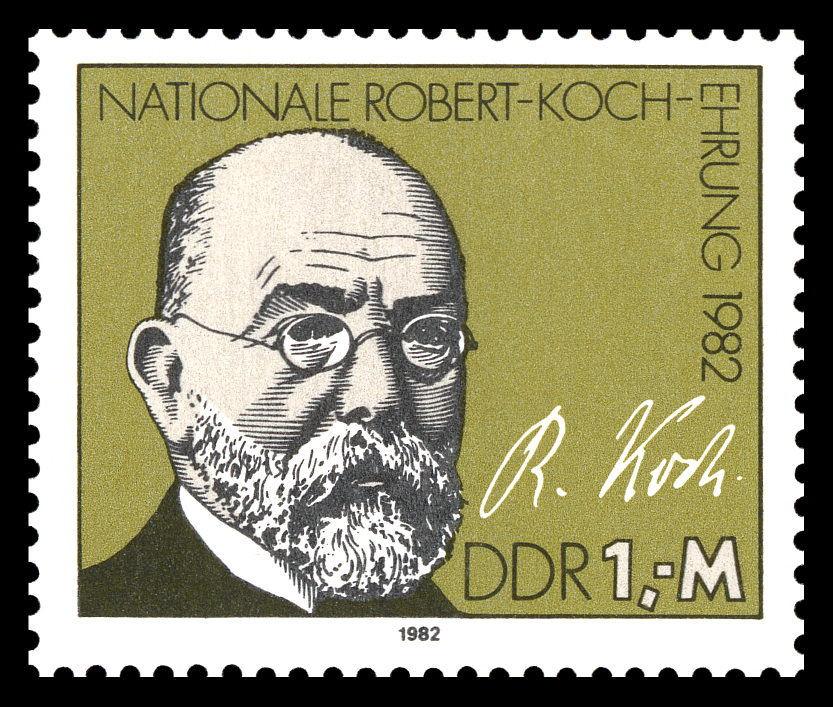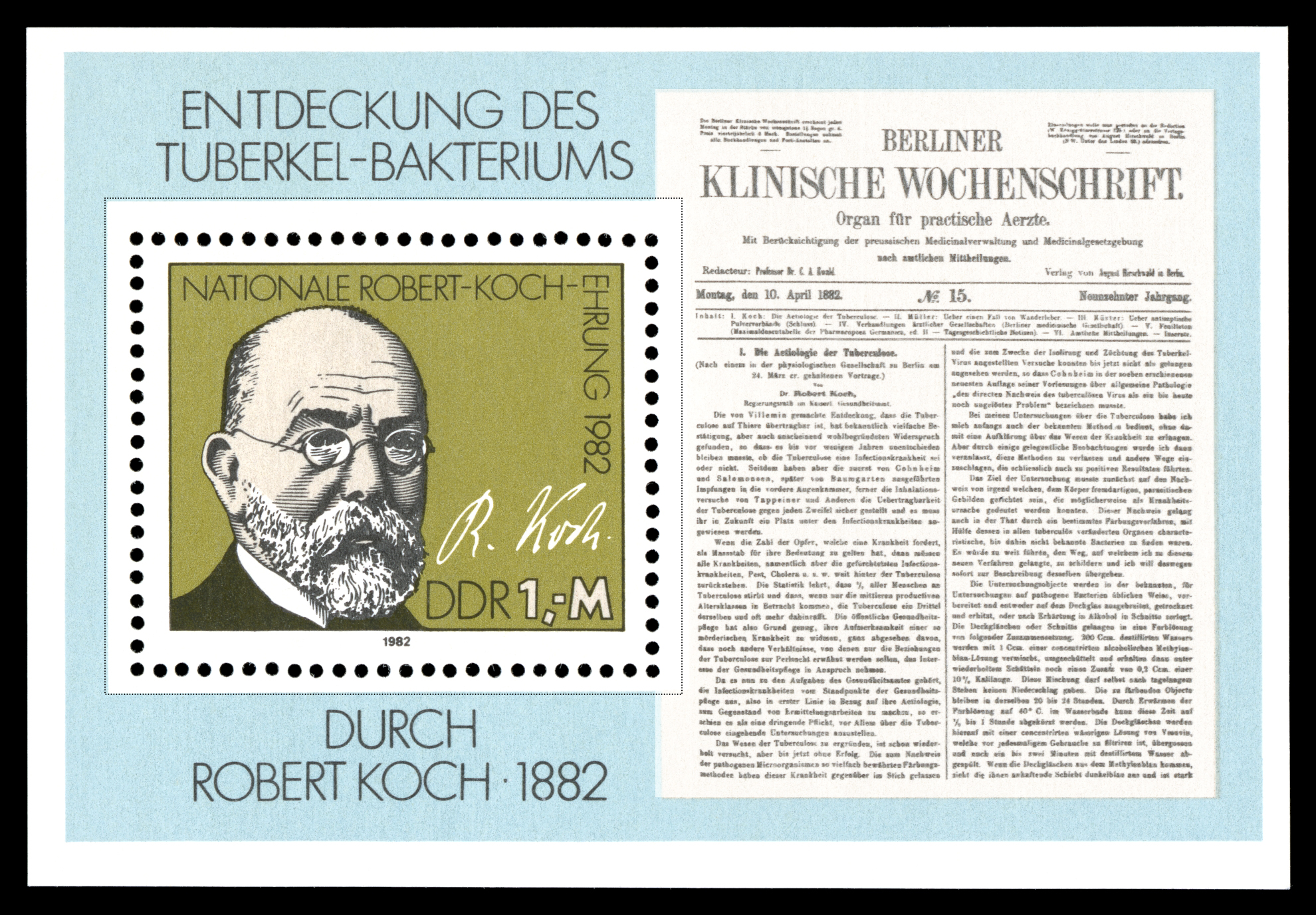The Stamp
T his stamp was issued in 1982, in East Germany (DDR), to commemorate the 100th anniversary of the discovery of the tubercule bacillus. It is still part of a mini sheet which also shows a reproduction of his original article (bottom of page).
his stamp was issued in 1982, in East Germany (DDR), to commemorate the 100th anniversary of the discovery of the tubercule bacillus. It is still part of a mini sheet which also shows a reproduction of his original article (bottom of page).
The Doctor
Heinrich Hermann Robert Koch was born in Clausthal, Germany, on 11 December 1842. At the University of Göttingen he initially studied Natural Science before changing to Medicine. He worked as a military surgeon in the Franco-Prussian War.
Koch is considered the founder of modern bacteriology. He developed certain scientific postulates linking cause and effect of an infectious disease and establishing the significance of laboratory culture of infectious agents.
Koch’s Postulates
- The organism must always be present, in every case of the disease.
- The organism must be isolated from a host containing the disease and grown in pure culture.
- Samples of the organism taken from pure culture must cause the same disease when inoculated into a healthy, susceptible animal in the laboratory.
- The organism must be isolated from the inoculated animal and must be identified as the same original organism first isolated from the originally diseased host.
Urology Connections
In 1882, Robert Koch (1843-1910) isolated the tubercle bacillus and, in 1883, Mycobacterium tuberculosis, an acid-fast aerobic bacillus, was identified in samples of urine and sputum. Koch's discovery revolutionised the diagnosis of urinary tuberculosis, and allowed the natural history of the condition to be accurately followed.

← Back to Stamp Collection